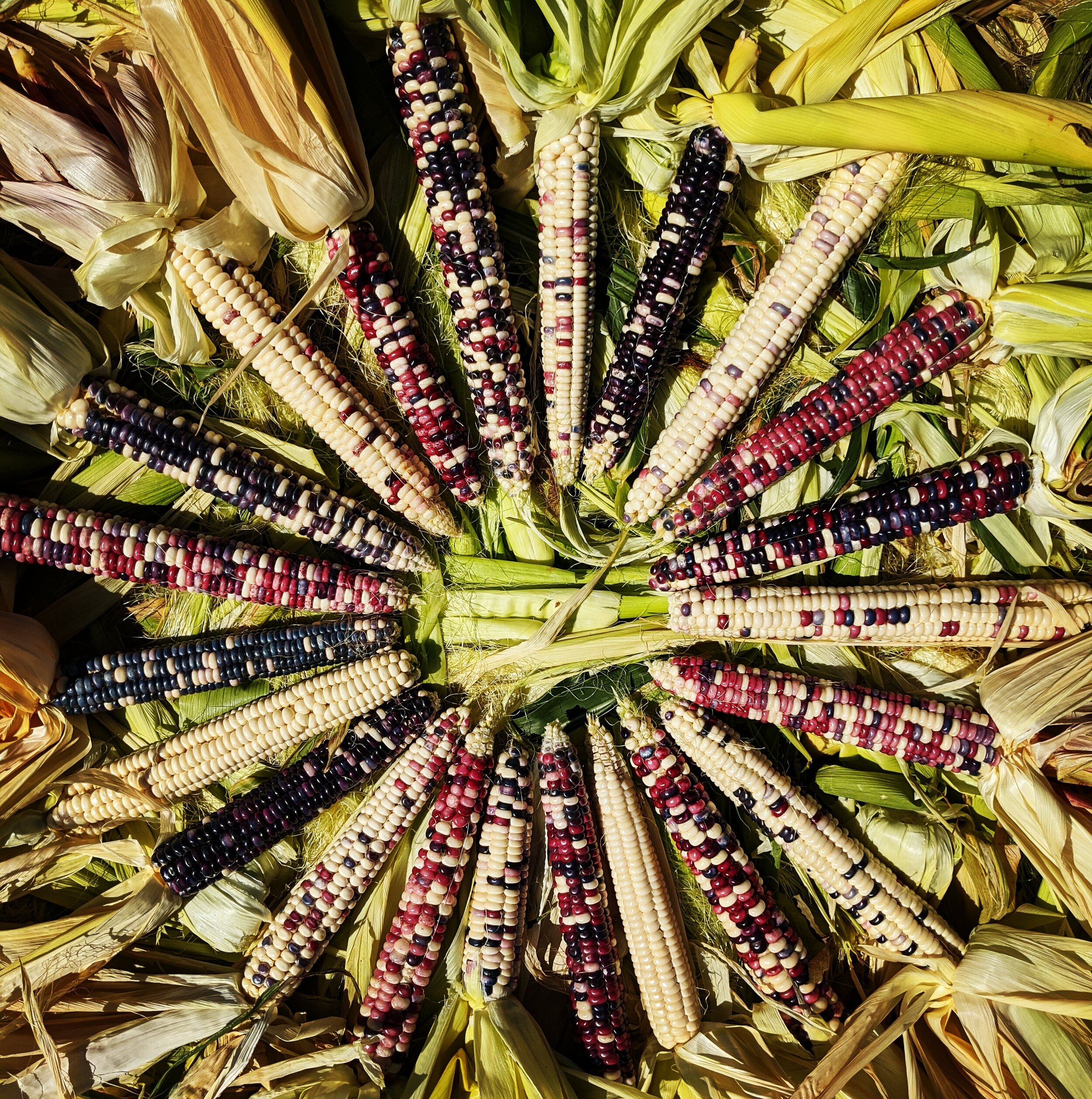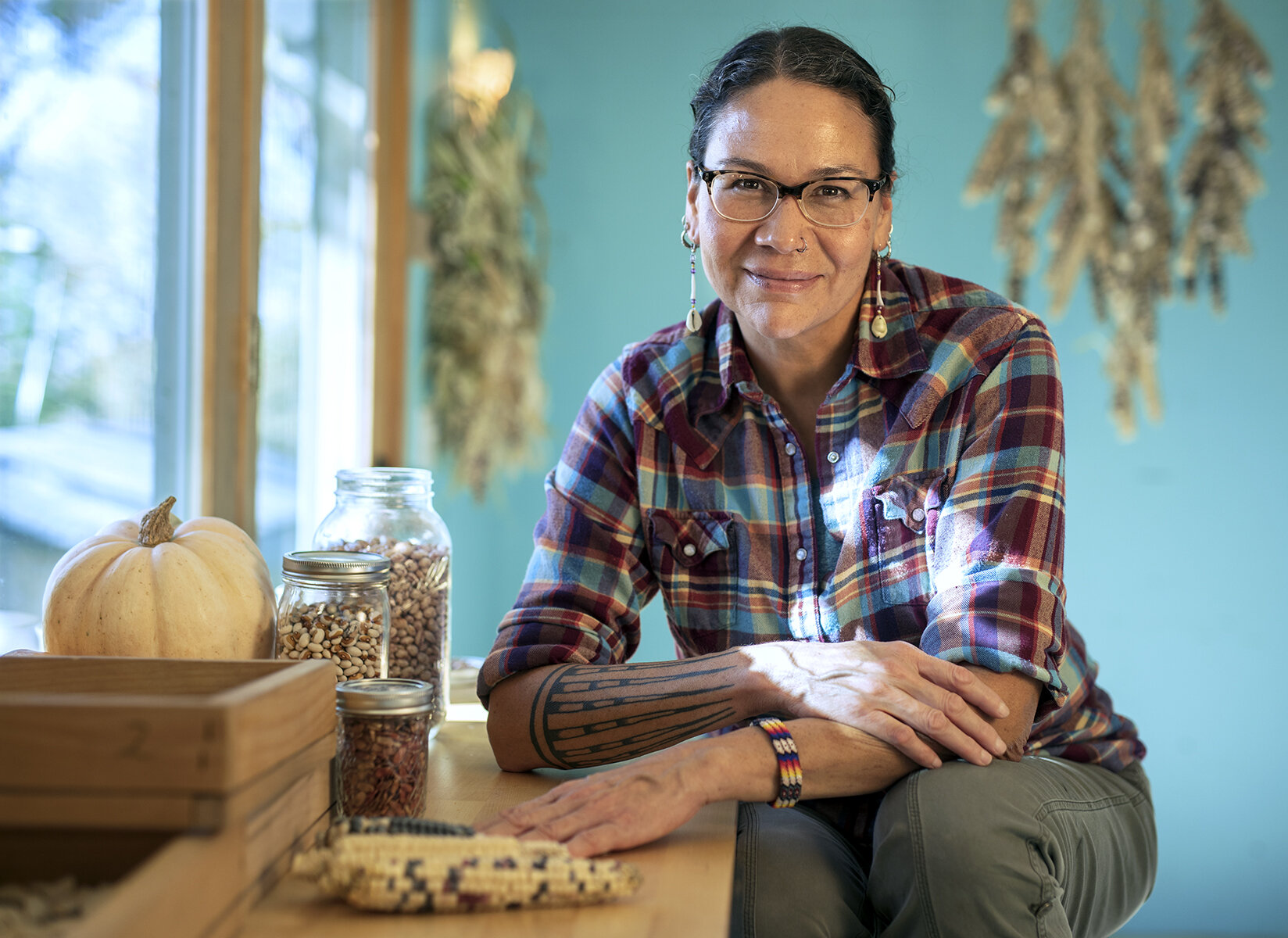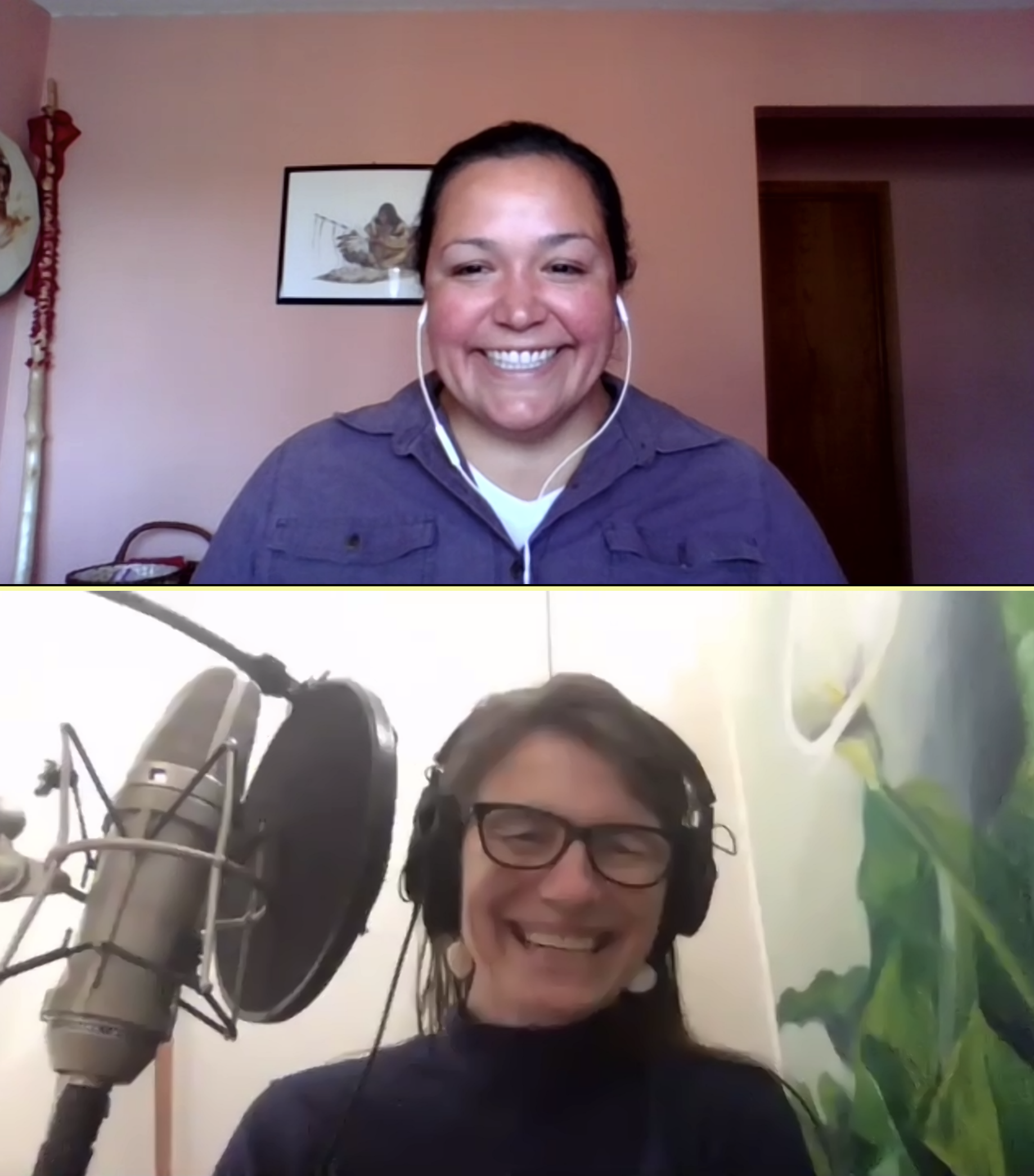Speaker: Becky Webster | Air Date: November 30, 2021 | Run Time: 54 mins | The Native Seed Pod: Season 3
Seed Rematriation with Becky Webster
Harvesting beans at Ukwakhwa
Host Melissa Nelson sits down with Becky Webster, Oneida farmer, seedkeeper and attorney. Their conversation explores the challenges and joys of being a Native farmer, cultivating recently rematriated crops, navigating both market and trade economies, and more.
This episode is the third of three episodes focused on Seed Rematriation, and is a co-production of The Cultural Conservancy and Native American Food Sovereignty Alliance’s (NAFSA) Indigenous Seed Keepers Network (ISKN). These episodes are part of a collection of Seed Rematriation media that we have co-produced with NAFSA and Rowen White of ISKN.
This conversation was recorded on August 9, 2021.
“Ukwakhwa means Our Foods, Where We Plant Things. So it’s more than just about planting seeds in the ground. It’s about planting these ideas in our community about reclaiming, who we are, reclaiming our relationships with our foods and our relationships with each other.”
About Becky Webster
Dr. Rebecca Webster is an enrolled citizen of the Oneida Nation. She is a founding member of Ohe∙láku (among the cornstalks) a co-op of 10 Oneida families that grow 6 acres of traditional, heirloom corn together. She and her husband also own a 10 acre farmstead where they primarily grow Haudenosaunee varieties of corn, beans, and squash. Their philosophy is that every time an indigenous person plants a seed, that is an act of resistance, an assertion of sovereignty, and a reclamation of identity. With these goals in mind, an Oneida faithkeeper named their 10 acre homestead Ukwakhwa: Tsinu Niyukwayayʌthoslu (Our foods: Where we plant things). Based on their farming practices, they started a YouTube Channel called Ukwakhwa (Our Foods) where they share what they learned about planting, growing, harvesting, seed keeping, food preparation, food storage, as well as making traditional tools and crafts. Most recently, their family formed a 501(c)(3) nonprofit organization, Ukwakhwa Inc., to help advance their goals of helping share knowledge with the community.
Additional Resources
Seed Rematriation fundraiser for Native American Food Sovereignty Association (NAFSA) and Indigenous Seed Keepers Network
Seed Mother: Coming Home - this short film is part of the suite of Seed Rematriation media that we have co-produced with NAFSA, and which features Becky Webster and other seed keepers
Haudenosaunee Bear Paw Beans (Scarlet Red Runners), one of the many seeds appearing in this episode
CREDITS
Host/Writer/Director: Melissa K. Nelson
Producer: Mateo Hinojosa
Co-Producer: Sara Moncada
Special Co-Producer: Rowen White
Audio Editor and Engineer: Colin Farish
Photography: Cale Stelken, Mateo Hinojosa
Song Credits
Music by: Colin Farish
Voice: Capomo
Keyboards, drums, flute, sound design: Colin Farish
Violin: Savannah Jo Lack
Cello: Robin Bonnel
Oboe: Paul McCandless
Recorded and mixed by Colin Farish at Stillwater Sound, San Francisco CA
(c)(p) Winds of the Muse ASCAP 2021. Used with permission.
This short film, highlighting the essence of the Seed Rematriation movement, is part of the collection of media that includes this podcast episode. It features Becky Webster and seeds that have been rematriated.






















